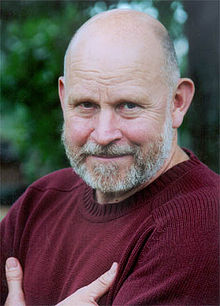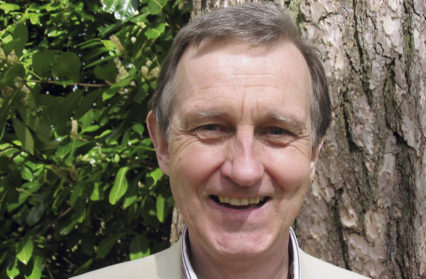BBC Hoddinott Hall, Wales Millennium Centre, Cardiff, 20 May 2016
BBC National Orchestra of Wales
Edwin Outwater: conductor
Maxim Rysanov: viola
Alice Neary: cello
Members of the BBC National Chorus of Wales
Pēteris Vasks – Cantabile
Pēteris Vasks – Viola Concerto (world premiere)
John Metcalf – Cello Symphony
The closing night of this year’s Vale of Glamorgan Festival served as a celebratory connection between two contemporary composers at the top of their careers. Both Pēteris Vasks’ Viola Concerto and John Metcalf’s 2004 Cello Symphony, are large works. They build, ebb, flow and transport. Both contain, at heart, a central relationship between soloist and orchestra. Both Vasks and Vale of Glamorgan Festival founder Metcalf celebrate their 70th birthdays this year.
The starring Concerto and Symphony were preceded by Vasks’ Cantabile (1979). ‘In his home country,’ writes Metcalf, ‘Pēteris Vasks is frequently referred to as “Latvia’s ambassador in music”.’ To my mind, this is an accolade entirely befitting. Gentle, imperceptibly building, elegiac, this opening piece painted the requisite scene for what was to follow. There was a subdued openness conveyed through Cantabile that was harmonious and effective. Moreover, the BBC National Orchestra of Wales played in such a way as to be immediately descriptive.

The world premiering Viola Concerto by Vasks that followed had a further, still-complex quality. Maxim Rysanov’s vibrancy with the viola and his relationship with the conductor, Edwin Outwater, was controlled at all times. The piece traversed various stages: a repeating sequence of build-up, lull, then re-charge of energy. Appearing at times slightly strained, Rysanov played in uninterrupted, intended, counterpoint to the massed forces. The masterful accompaniment of the string orchestra smoothed any seeming disconnection and the work, vast and resonant of Vasks’ usual beloved, rich themes of nature and its destruction, remained moored and rooted in a singular spot here.
Metcalf’s Cello Symphony also placed a soloist at its heart. It reached significantly farther. Alice Neary, as cello soloist at the fore of such a robust orchestra, provided a sound lead for this fine and spectacular ending to the Festival, with masterfully dextrous playing. Metcalf describes the approach as one in which the solo instrument emerges from a ‘community of fellow instruments’. This was precisely the effect. The additional texture and depth lent by the wordless male voices from the BBC National Chorus of Wales emphasised the song connection with Wales; the presence of the large bass drum compelled curiosity; the xylophone added sonic polyphony as much as it did visual drama.
The finale, with its pounding union of bassoons, trombones and clarinets united the various thematic threads – war, love and Wales amongst these – with a defined character. The striking moments of intensity through the symphony here found their conclusion in an ending that was entirely befitting all that is represented by the Vale of Glamorgan Festival.
Metcalf prefaced his work with Siegfried Sassoon’s words: ‘The song was wordless – the singing will never be done.’ The audience, of which many stood to applaud, evidently felt the relevance of these upon such an effective and poignant performance.
Header photo: John Metcalf











